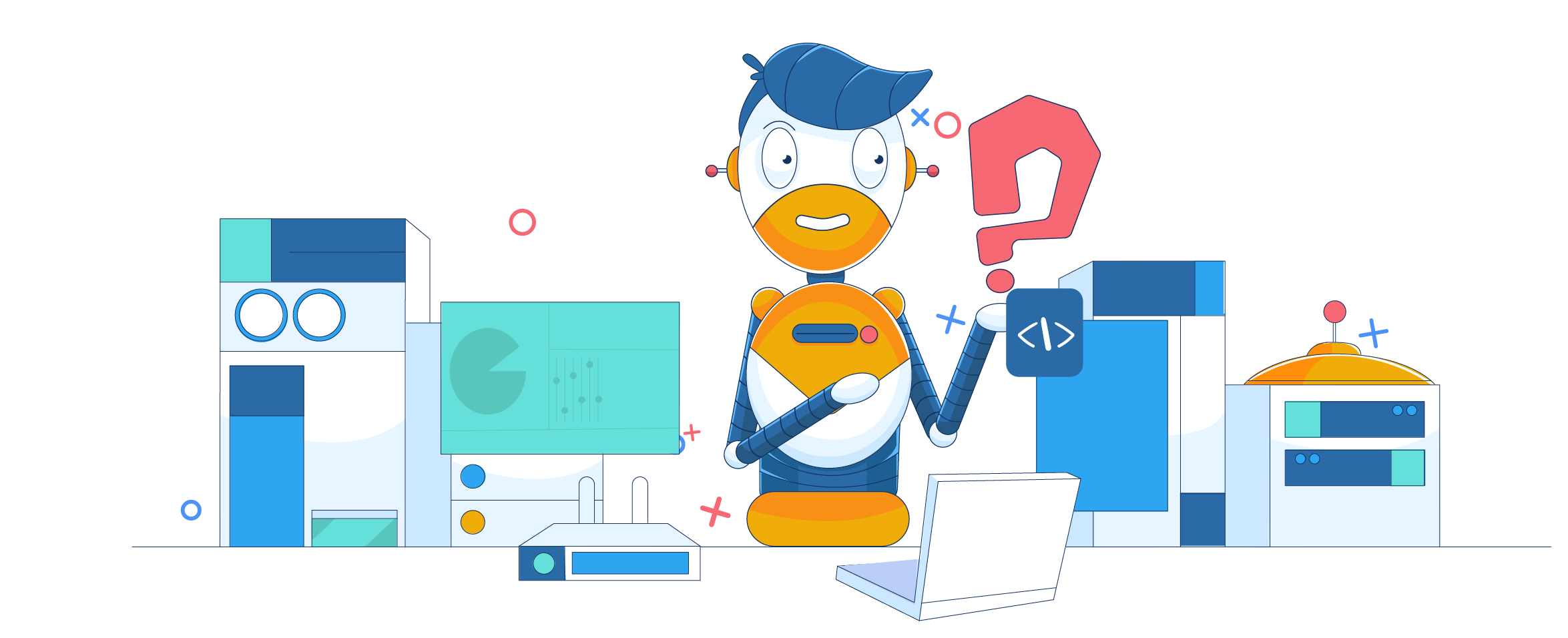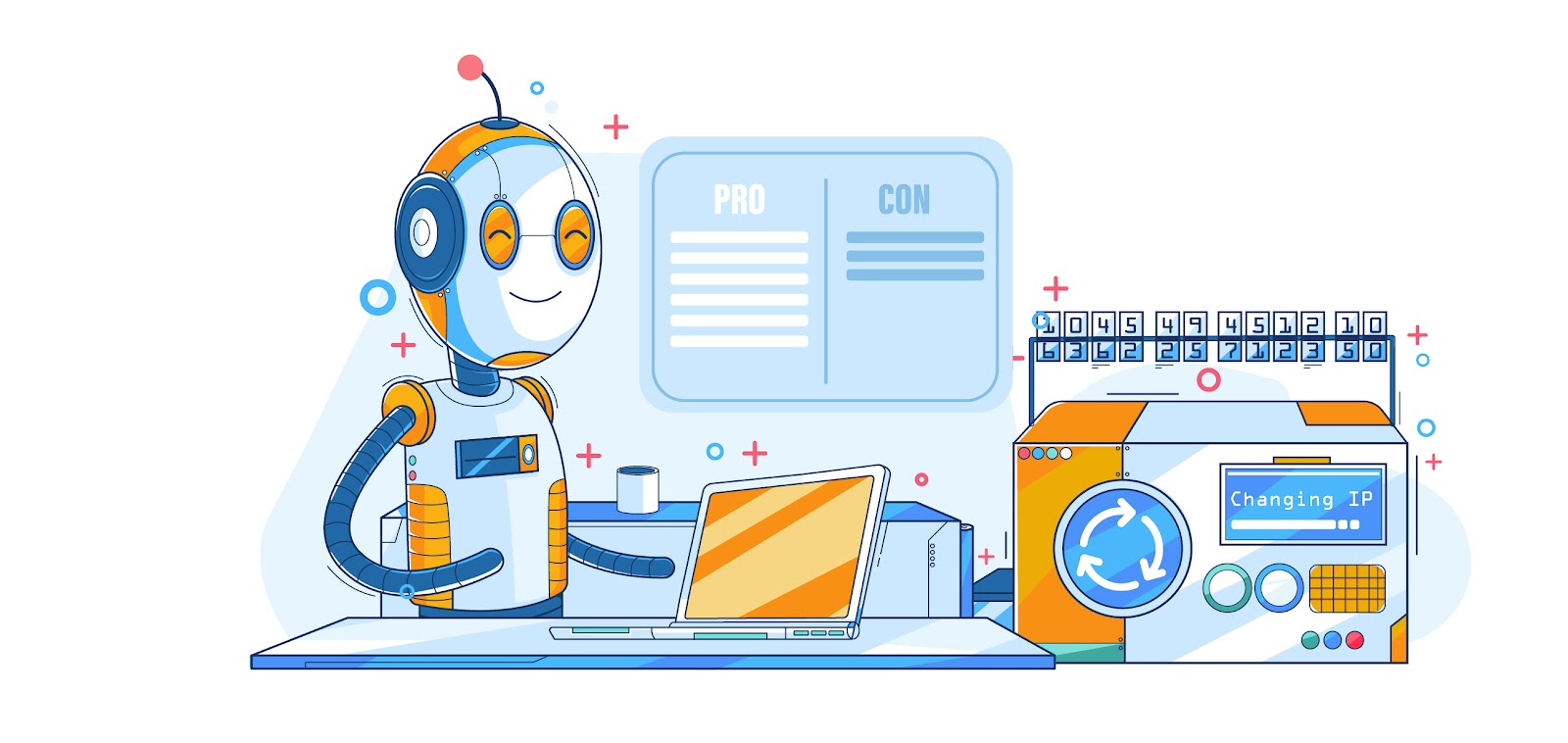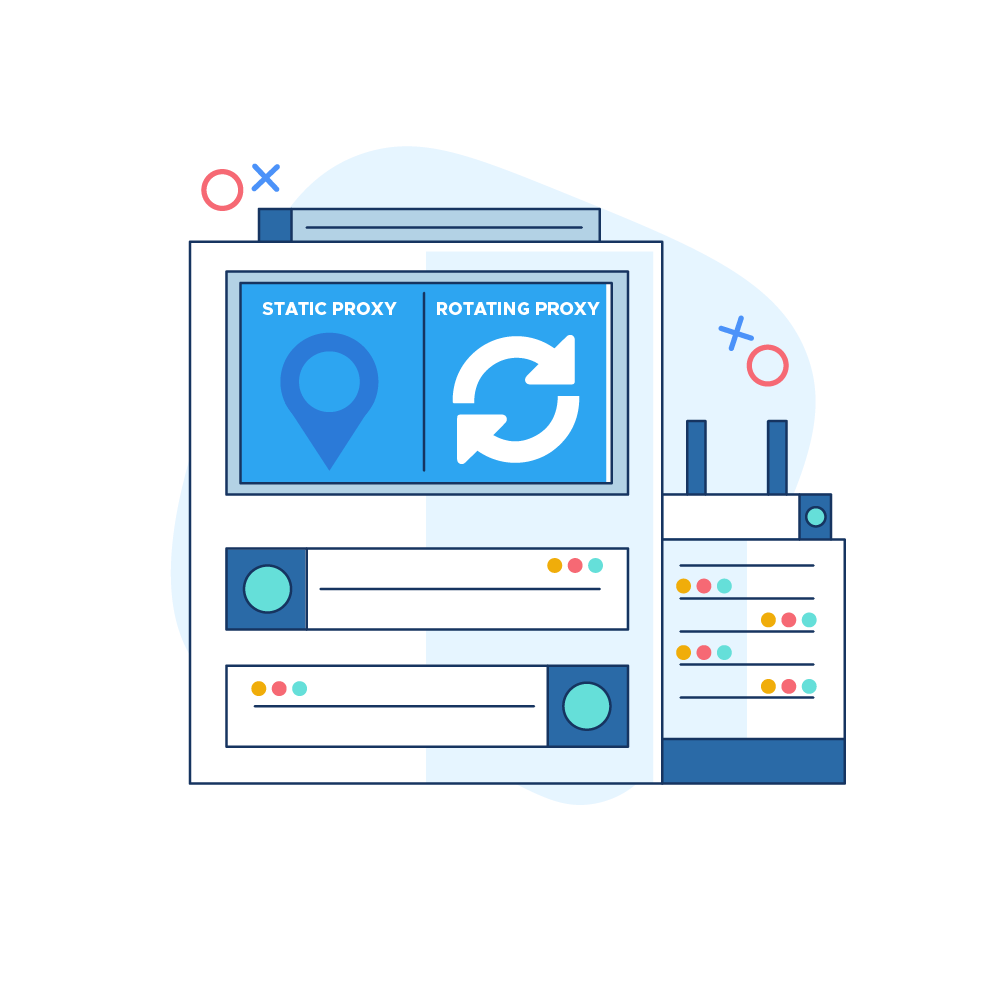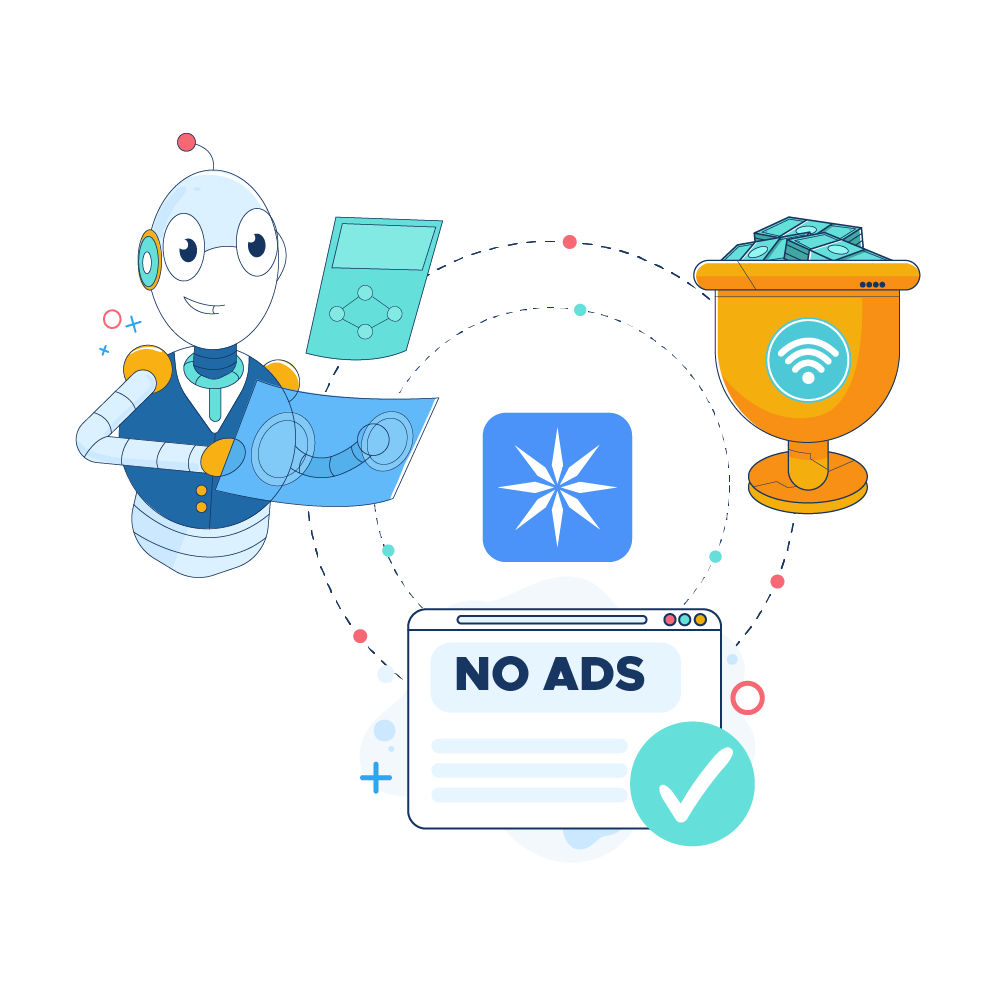ROTATING RESIDENTIAL PROXIES
Special Rotating Proxies
Rotating residential proxies with worldwide geo targeting optimized for high success rates.
Basic Rotating Proxies
Rotating residential proxies with random geo location.
Fast Rotating Proxies
Rotating residential proxies with worldwide geo targeting optimized for scraping and data gathering.
On Demand Proxies
Residential proxies with on demand rotation, geo targeting using user and password authentification.
Residential vs Datacenter Proxies: Differences and Use Cases
posted on 14.06.2022 in Residential Proxies by James Meadow

Residential and datacenter proxy may be used for different purposes. For example, many companies need to access web data from the online environment in order to achieve their business purposes, from price comparison, data extraction, market research, SEO, sales intelligence, and web testing to travel aggregation and e-commerce.
But how do you proceed when the Internet safeguards the best sources of information in hard-to-reach places protected by online blocking mechanisms that are difficult to overcome?
The best way to access the required data with your scraping tools is to appeal to a type of proxies that can act as a gateway between your system and the online locations you visit.
Companies that are involved in web scraping activities are surely aware that, in order to reach the targeted information, a proxy server is more than necessary to bypass restrictions.
Though there are many types of proxies in the world, we will focus on the most popular proxies available right now for these types of jobs: we are obviously referring to residential and datacenter proxies.
Now, let’s try to understand what are the main pros and cons of residential and datacenter proxies so that users who require these tools may be able to make the right choices for their businesses.
Residential vs Datacenter Proxies: Pros & Cons

First of all, we have to comprehend that both residential and datacenter proxy networks are convenient means for companies that are involved in online extraction projects to reach the required information.
These proxy servers act as online gateways for enterprises that are involved in data-demanding projects which require substantial resources. However, not all projects are created equal and every company comes with its own needs.
Residential and datacenter proxies are both useful to hide a user’s real IP address and can be successfully used in most cases when scraping data from various online sources. In other words, both residential and datacenter proxies manage to act like intermediary doors offering users the ability to reach sites from different geographical locations while masking their real IP addresses.
However, though they may seem similar, the two types of proxies are not the same.
A datacenter proxy takes a user’s IP address and replaces it with the one belonging to the datacenter you are using, whereas a residential proxy takes a user’s IP address and replaces it with a home Internet connection.
Let’s have an overview of what residential and datacenter proxies are and what are their pros and cons.
What are residential proxies?
This is quite simple to explain as we all use a residential IP address at home, an IP address that we usually obtain from the Internet Service Provider in our area.
The IP address we are using connects us to a particular location and if someone would like to find out more details about us by checking our IP address that person would discover variable information such as the country, the city, the ISP, and maybe even our neighborhood.
Now, when a company signs up with a proxy provider for a residential solution, they would receive a list of residential proxies that replace the original IP addresses during the time they are scraping online data.
Why would someone take the trouble to go online with a different IP?
That’s because many companies need to obtain a certain type of web data for their projects and do not want to be restricted from reaching those venues. With a residential proxy - especially a rotating one that changes the IP address every 5 or 10 minutes - the ban rate diminishes and the chances of success increase dramatically.
So, a residential proxy is more than important if you need to go online without getting blocked, access geo-restricted sites or if you need to scrape web data from various websites for your projects.
Pros of residential proxies
Residential proxies may be the best solution for companies that need to obtain reliable data from online sources for their business projects.
Let’s see exactly why residential IPs are our recommendation for companies that engage in resource-demanding scraping projects where reliable data is vital.
Residential IPs come from real people
Residential IPs are more legitimate than the ones provided by a datacenter as they come from genuine users in residential locations.
Using residential IPs companies that engage in web scraping projects have better chances of avoiding the security systems in place as the IPs actually belong to real people that do not trigger the sites’ defense mechanisms.
Residential IPs provide a low block rate
As we emphasized previously, residential IPs belong to genuine users allowing those using them to run web scraping projects without getting ‘noticed’ or blocked from accessing certain online places.
Further on, with residential IPs provided by a reliable proxy provider, users manage to obtain the required information fast and without any worries from the sites they target while enjoying a high level of customer satisfaction.
Residential IPs offer a high level of anonymity
Since residential IPs are very difficult to detect and block by websites, they naturally offer a great degree of privacy and anonymity.
In today’s world, companies building their businesses on up-to-date information that arrives at the right time need to know that reliable proxy providers, such as Shifter, are ready to deliver performant residential IPs that get the job done.
Cons of residential proxies
Though residential proxies may sound great and the ideal choice for any business that wants high performance and great results, there are a few shortcomings that we need to be aware of.
Few reliable residential proxy providers
Residential proxies providers are not that many to choose from in the industry, so before making your choice you should do your homework and check what your options are. Various proxy platform suppliers come with different prices, and some proxies are just more reliable than others. Check the market first and then make your choice.
Limited speed
Residential proxies may be great for all types of web scraping projects, but speed is not one of the strong points. We have to remember that when using residential proxies we have to rely on the actual users’ IP addresses and networks to connect to the online sites of interest.
And since the connection speed can never be guaranteed by any party - including in countries and areas that are normally doing great in this respect - any user of residential proxies will be dependent on the local conditions.
To counter this impediment, users need to make sure they choose a reliable proxy platform provider that offers residential IP addresses from countries recognized for the quality of the Internet.
Higher prices
Since residential proxies represent the best choice for any company that relies on these types of services to scrape online venues without any issues, it is only normal to find residential IPs provided at steeper prices.
Therefore, before making your choice, always try to determine if you really need the high-quality residential proxies and if your project(s) may not be served by a datacenter proxy network.
Check out more why use residential proxy.
What are datacenter proxies?
Datacenter proxies are more common than residential proxies and come obviously from data centers found in various countries. Further on, datacenter proxies are not related to Internet Service Providers and whenever anyone wants to go online on a datacenter proxy network, the original IP address will be replaced with the data center’s IP.
So, do datacenter proxies work just like residential ones? Do they hide a user’s IP address allowing access to various online sites? Well, yes and no.
Datacenter proxy networks provide a set of virtual IP addresses that do manage to mask a user’s original IP address, but at the same time, they are also easily detected as datacenter IPs and are many times blocked or restricted from reaching certain data.
Let’s see what are the main pros and cons of datacenter proxies.
Pros of datacenter proxies
Since most proxy platform providers are equally delivering residential and datacenter proxies, there are indeed several reasons a company would want to take advantage of datacenter IPs instead of choosing the more expensive alternative provided by residential proxy networks.
Datacenter IPs are easy to find
It is just easier to acquire datacenter proxies than residential ones from a greater number of companies in the market.
Most companies that are involved in various online projects - from sales and marketing to social media and SEO purposes - prefer first to obtain the necessary information via datacenter proxies before making the step towards residential proxies.
Later on, when the success of the business depends on using a powerful set of proxies, the companies that do not want to risk any failures will employ residential IPs. Let’s just say that when the going gets tough, the tough get going.
Datacenter IPs are fast
One of the main advantages provided by datacenter IPs and very much appreciated by numerous companies in the market resides around speed.
Since datacenter IPs do not belong to normal users, they are not so much dependent on the Internet Service Provider’s network or the overall quality of the Internet connection from that particular country.
Users should not be surprised to discover that most datacenter proxies are provided by servers located in countries recognized for the quality of the Internet.
Datacenter IPs are cheaper
Datacenter IPs are cheaper than the residential ones as they are easier to obtain, even though they do not offer the same level of access and privacy in the online environment.
Since datacenter IPs sometimes get blocked or restricted from accessing some online locations, they are somehow less reliable for online projects that demand powerful resources so users need to find the middle ground between price and quality when choosing what types of proxies to use.
Cons of datacenter proxies
Though datacenter proxies may seem like a great deal for companies that require fast and cheap IPs for their projects, we have to emphasize that datacenter proxies do come with a major limitation when we compare them to residential proxies.
Datacenter IPs are easy to detect and block
The main disadvantage of datacenter proxies is that they are quite easily detected and blocked by numerous websites, which makes them less desirable to most companies that mean business when going online to obtain the data they need for their major projects.
When such cases arise, users look for proxies that can deliver results and the required quality can only be provided by companies that offer the best residential proxies in the industry.
Residential or datacenter proxies: What to choose for your business?

This is the main question you need to answer before acquiring a set of residential or datacenter proxies. You need to establish how hard it is to scrape information from the sites you target and what type of information you want to retrieve.
Usually, companies that are involved in this industry and use proxies for their online scraping activities know what issues tend to appear and what solutions they need to employ to overcome them.
If we are to provide a few pieces of advice, we would tell our customers to first test a datacenter proxy network and start from there. Since datacenter proxies are cheaper and faster, they might do the job just fine for their projects.
However, if customers encounter sites that seem to block the datacenter proxies resisting any scraping attempts, then the residential proxies might just be the solution to crack any hard-to-get website(s).
At the end of the day, the final choice is yours and it all depends on your business needs. You are the one to decide what type of data you need to acquire and what tools to use to reach your business objectives.
Check out more use cases such as:
This category's latest stories

8 Myths About Proxies. What You Should Know?
Are you aware of all the myths and stories surrounding proxies? Check our article and test your knowledge of proxies’ true limits in the online environment.

What Are Rotating Proxies and Why Do You Need Them for Your Business?
What are rotating proxies and how can they help your business? Learn the answers to important questions and see why you need them for your business.

Static or Rotating Residential Proxies: Benefits and Drawbacks
What is the difference between Static and Rotating Residential Proxies? Which ones are better for your business projects? Read our blog post to find out why both static and rotating residential proxies are great solutions for businesses that need to obtain valuable data.
Featured Articles

News
02.12.2024
Introducing Ice Payments on Shifter
Discover seamless crypto transactions with Ice payments on Shifter. Streamline your proxy service purchases and unlock new opportunities with Ice integration.

Residential Proxies
04.04.2023
8 Myths About Proxies. What You Should Know?
Are you aware of all the myths and stories surrounding proxies? Check our article and test your knowledge of proxies’ true limits in the online environment.

News
03.21.2023
Looking for an Alternative to Pi Network? Why ice Network is the Perfect Solution
Find more about the tremendous advantages of the ice Network and mining ice coins, as many are starting to take notice, ultimately choosing to leave Pi Network to have access to better, more rewarding opportunities.
Shifter's legacy
Shifter was founded in 2012, as one of the first residential proxy providers, since then it has become one of the leading proxy networks in the world and it's used by more than 25.000 clients including Fortune 500 Companies. Users can connect from anywhere to access local data without any restriction, while preserving a high degree of privacy and security.